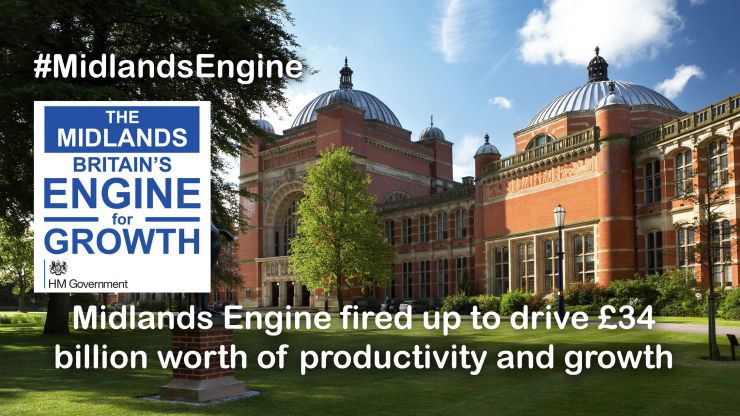Made in the Black Country, sold around the world.
Greg Clarke, Secretary of State for Business, Energy and Industrial Strategy picks up on the strengths of the Black Country in a supplement to the New Statesman (22 September 2017).The Black Country is a key part of the “Midlands Engine”, a government initiative that recognises the region as having huge international trading potential.
Clarke suggests that “People who voted for Brexit did not vote to be less prosperous.” Though he ignores the unintended consequences of people’s actions, he is quite correct when he observes:
"And the Midlands is one of the best examples in the country of how each product created, in services as well as manufacturing, is part of a network. There is scarcely a product or a service made here for export that is not an advanced combination of components, capital equipment, design, expertise and intellectual property from a wide range of countries."
The Black Country, still recovering from its loss of heavy industry, nonetheless remains to this day a centre of high value manufacturing. A higher proportion of its population are employed in such fields as automotive manufacturing or aerospace than any other area of the country. Skills are kept alive and young people can aspire to apprenticeships and professional jobs with such companies such as JLR or Moog. This manufacturing, as Clarke says, relies on a wide range of countries. Indeed, components can cross the Channel five times in the course of assembly into a finished product.
Brexit, and the complexities of international trade in its aftermath, pose an enormous challenge to Midlands industries. The stakes are high. Any tariff or non-tariff barriers which disrupt the free movement of goods would have serious effects. Reuters reports that “Jaguar Land Rover, Britain’s biggest carmaker, estimates its annual profit could be cut by 1 billion pounds ($1.47 billion) by the end of the decade if Britain leaves the European Union, according to two sources familiar with the company’s thinking.” The danger is that they would move production abroad.Indeed, the two year transition period sought by the government after we leave the EU for businesses to prepare for the change would be an ideal opportunity for relocation.
The consequences for the Black Country and for the Midlands, especially for its emergent generation, would be disastrous. People would have voted to be less prosperous.
In Biblical times, the advantages of international trade are clear.King Solomon’s temple (1 Kings 5) relied on cedar and juniper logs imported from Lebanon. In return, Israel exported wheat and olive oil to Tyre. Alongside this, there was free movement of labour. “The craftsmen of Solomon and Hiram and workers from Byblos cut and prepared the timber and stone for the building of the temple” (5: 18). At a time when warfare was the default setting of neighbouring nations, the tone of the whole chapter is remarkably cordial.
If nations could do that 3000 or more years ago, why are we taking such a step back today?
